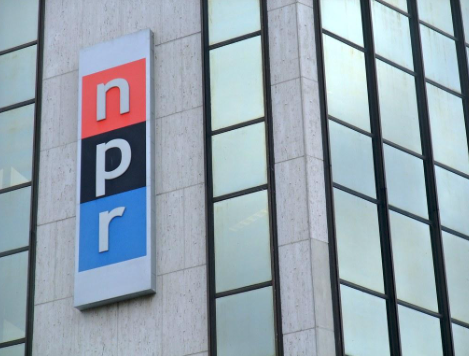Media Matters: Defunding or defending public radio
"A recent New York Times study showed that Ohio public radio stations, on average, get about 6% of their budget from federal dollars, while Mississippi's public radio stations get 30% of their budget from the CPB."

“You May Hate NPR. But Killing CPB Puts Rural America at Risk.”
This was a headline in a recent issue of RadioWorld. It refers to President Trump signing a bill last week that took back $1.1 billion that Congress had previously allocated to the Corporation for Public Broadcasting (CPB). Although National Public Radio (NPR) and the Public Broadcast Service (PBS) mostly rely on donations and sponsorships, they have received support from the CPB since the late 1960s. The recent cut ends all federal support for public TV, NPR, their member stations and independent community radio stations.
So what does this mean for public radio, a major local news source, especially in rural and small-town communities where newspapers have disappeared?
It means a lot more fundraising, as our editor learned last week in interviews with the general managers of WYSO and WVXU/WMUB, the dominant public radio stations in Southwest Ohio. Both GMs acknowledged they operate in markets with large populations and can, at least temporarily, “fundraise their way out” of these cuts. In fact, the Oxford Free Press reported last week that WYSO raised $60,000 in half a day after the federal cuts were announced.
The problem is that small towns and poorer states do not have access to the kind of donor and sponsorship support found in larger cities. A recent New York Times study showed that Ohio public radio stations, on average, get about 6% of their budget from federal dollars, while Mississippi's public radio stations get 30% of their budget from the CPB.
Republican legislators have attempted to defund public radio periodically over the last 30 years or so. Why? In general, they believe that NPR, an award-winning national and international news service, which gets only about 2% of its budget from the federal government, is somehow a radical left operation. Most research ranks NPR as either centrist or left-leaning in its overall news coverage.
In fact, there is an argument to be made that even a slightly left-leaning national radio network functions as a small counterweight to local talk radio, which is 90% conservative, according to annual studies that go back to 2007.
So who exactly are GOP legislators punishing? What they don’t seem to realize is that most of the money from the CPB goes to local public radio and community stations, not only so they can purchase national and international programming, but also to support their local reporting staff and maintain their daily operations.
In her guest essay in RadioWorld, Rima Dael, author of “Public Media is a Conduit for Public Good,” writes: “The National Federation of Community Broadcasters represents nearly 200 community radio stations across the United States. Most of these stations are not affiliated with NPR or PBS. They are hyper-local, often 100% volunteer-run operations serving small towns, Tribal nations and rural communities. They operate on shoestring budgets, powered by donated time and secondhand equipment. For these stations, federal support through the Corporation for Public Broadcasting is not ideological – it is survival.”
The Times study shows that the 24 states with two Republican senators voted to defund public media. The 22 states with two Democratic senators voted against the rescission bill. Maine’s senators, one Democrat and one Republican, also voted against the bill, with Sen. Susan Collins opposing her party. Three states – Alaska, Pennsylvania and Wisconsin – split their votes. Collins and Alaska’s Republican Sen. Lisa Murkowski – two of only six Republicans in Congress who opposed the legislation – proposed an amendment that would defund NPR but keep money flowing to local stations. That amendment got nowhere.
A frustrated Murkowski, who worries about the future of early emergency warning systems that local public radio provides, told Alaska Public Media: “Every time [her Republican colleagues] spoke about public broadcasting in the negative they used words like ‘It’s a radical liberal agenda.’” There is no evidence to support this.
“I have no surety these small stations that provide such important connections within their community are going to be able to stay afloat,” Murkowski said.
The Times concluded a recent editorial, “This is Why America Needs Public Media,” on this note: “Public media, like every other major institution, is imperfect. But it improves the lives of millions of Americans … It should not become yet another victim of our polarized political culture."
For now, public radio and TV are on their own – and need our support.
Richard Campbell (campber@miamioh.edu) is a professor emeritus and founding chair of the Department of Media, Journalism & Film at Miami University. He is the board secretary for the Oxford Free Press.




